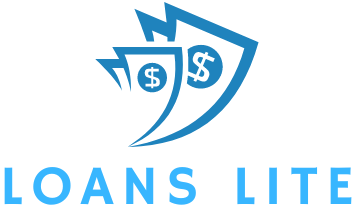Let’s be real: life is unpredictable. You can plan and budget all you want, but unexpected expenses, emergencies, or that one bill you forgot about can throw your finances into chaos. If you’ve ever been caught between paychecks and needed a quick solution, you’ve likely heard about payday loans. But what are they? Are they worth it? In this article, I’ll break it all down, give you the pros and cons, and help you decide if a payday loan is the right choice for your financial needs.
What Are Payday Loans?
Payday loans are short-term, high-interest loans designed to provide quick cash when you’re in a financial pinch. They’re typically due on your next payday, hence the name. Most payday loans are for smaller amounts, usually ranging from $100 to $1,000, depending on your income and the lender’s policies.
Here’s how it works: you borrow money to cover an urgent expense, and when your paycheck arrives, you repay the loan, plus fees and interest. Sounds simple, right? But there’s more to consider before jumping in.
How Do Payday Loans Work?
The application process for payday loans is typically straightforward and fast. Here’s the usual process:
- You apply online or at a storefront lender, providing proof of income, a valid ID, and a bank account.
- The lender reviews your application and approves you (often within minutes or hours).
- You receive the loan amount—either as cash or a direct deposit to your account.
- You agree to repay the loan on your next payday, including any fees and interest.
While payday loans can seem convenient, it’s essential to understand the terms before signing on the dotted line. The interest rates can be jaw-dropping, often equivalent to an annual percentage rate (APR) of 300% or more!
When Should You Consider a Payday Loan?
Payday loans can be helpful in specific situations, but they aren’t a one-size-fits-all solution. Here are some scenarios where a payday loan might make sense:
- Emergency expenses: Medical bills, car repairs, or other unexpected costs that can’t wait.
- Avoiding penalties: Paying off an urgent bill to avoid late fees, utility shut-offs, or overdraft charges.
- Short-term cash flow issues: When you know you can repay the loan quickly but need funds immediately.
However, payday loans should not be your go-to solution for regular bills or non-urgent purchases. The high costs can trap you in a cycle of debt if you’re not careful.
The Pros of Payday Loans
Let’s highlight the benefits of payday loans:
- Quick approval: You can often get approved and funded on the same day.
- Minimal requirements: No need for a high credit score—most lenders focus on your income instead.
- Accessible: Payday loans are available online and in physical locations, making them easy to find.
These features make payday loans attractive to those in immediate need, especially if other borrowing options aren’t available.
The Cons of Payday Loans
Now for the not-so-great side of payday loans:
- High costs: The APR for payday loans can skyrocket, making them one of the most expensive borrowing options.
- Short repayment period: Loans are typically due within two weeks, which may not be enough time to recover financially.
- Debt cycle risk: Many borrowers end up rolling over their loans, leading to even higher fees and mounting debt.
Before considering a payday loan, make sure you fully understand these downsides and have a plan for repayment.
Alternatives to Payday Loans
If the cons are giving you second thoughts, don’t worry—there are other options to explore. Here are some alternatives:
- Personal loans: Traditional personal loans often have lower interest rates and longer repayment terms.
- Credit cards: Using a credit card might be more affordable than a payday loan if you can pay it off quickly.
- Borrowing from family or friends: While not always ideal, this can be a cheaper and less risky option.
- Local assistance programs: Nonprofits and community organizations may offer emergency financial aid.
Exploring these options can save you money and help you avoid the potential pitfalls of payday loans.
How to Use Payday Loans Responsibly
If you decide that a payday loan is your best option, here’s how to use it responsibly:
- Borrow only what you need: Don’t take out more than you can repay on your next paycheck.
- Understand the terms: Make sure you know the total cost, repayment date, and any potential fees.
- Repay on time: Avoid rollovers or late payments, as they can lead to additional charges.
- Have a repayment plan: Budget carefully to ensure you can cover the loan without sacrificing essential expenses.
By being cautious and informed, you can minimize the risks associated with payday loans.
Are Payday Loans Worth It?
The answer to this question depends on your unique situation. Payday loans can provide fast relief in emergencies, but their high costs and short repayment terms make them a risky option. Carefully weigh the pros and cons, explore alternatives, and consider your long-term financial health before taking out a payday loan.
FAQs About Payday Loans
- Can I get a payday loan with bad credit? Yes, most payday lenders don’t require a high credit score and instead focus on your income.
- What happens if I can’t repay my payday loan on time? Late payments can result in additional fees and potentially harm your credit score.
- Are payday loans legal everywhere? No, payday loan regulations vary by state. Some states have strict rules or have banned them altogether.
- How much can I borrow with a payday loan? Loan amounts typically range from $100 to $1,000, depending on the lender and your income.
- Can payday loans affect my credit score? Most payday lenders don’t report to credit bureaus unless the loan goes into collections.
Payday loans can be a lifeline in specific situations, but they’re not without risks. By understanding how they work, the costs involved, and alternative options, you’ll be better equipped to make the right financial decision for your needs. Stay informed, stay cautious, and always prioritize your financial well-being.



